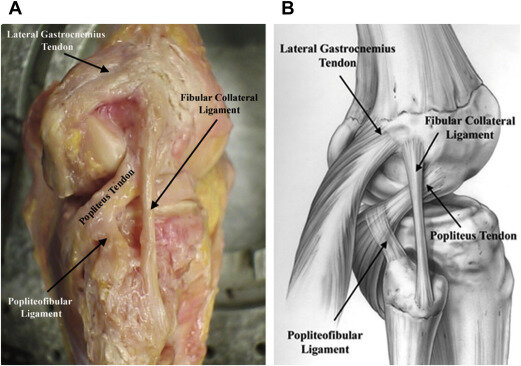
Knee - Arthroscopy and Sport Injury Specialist in Mumbai
PLC Tear and Reconstruction
Dr. Aditya Pawaskar is one of top notch knee arthroscopy surgeon and Sports Injuries Specialist in Mumbai. With his extensive experience in orthopedics, he provides excellent care and effective treatments for patients with shoulder and knee problems.
The Posterolateral Corner (PLC) of the knee is a complex region consisting of multiple ligaments and structures that provide stability to the outer aspect of the knee joint. Injuries to the PLC can result in significant instability and require specialized treatment. PLC reconstruction is a surgical procedure aimed at restoring stability to this region of the knee.
Indications for PLC Reconstruction:
PLC reconstruction is considered when there is significant damage or instability to the structures of the posterolateral corner. Common indications include:
- Complete Tears: Complete tears or severe injuries to the ligaments and structures of the posterolateral corner.
- Chronic Instability: Cases where the PLC instability persists or leads to recurrent episodes of instability despite conservative treatment.
- Multiligament Injuries: PLC reconstruction might be part of the treatment plan for patients with multiligament knee injuries.
Surgical Procedure:
PLC reconstruction is a complex surgical procedure that involves restoring the damaged ligaments and structures of the posterolateral corner. The specific surgical technique can vary based on the individual's injury and the surgeon's approach.
Sports Prone to PLC Tear and Reconstruction and Injury Risks:
Sports that involve a risk of Posterior Cruciate Ligament (PCL) tears, requiring reconstruction, are typically those with a high incidence of hyperextension, direct impact to the front of the knee, and rapid deceleration. In India, the following sports may be associated with a higher risk of PCL injuries:
- Football (Soccer): The dynamic nature of football, with sudden stops, changes in direction, and physical contact, can contribute to PCL tears.
- Cricket: Fast bowlers and fielders in cricket may be prone to PCL injuries due to the repetitive, forceful actions involved.
- Rugby: The physicality, tackles, and potential for hyperextension in rugby may lead to PCL injuries.
- Kabaddi: Frequent tackles and abrupt directional changes in Kabaddi can pose a risk of PCL injuries.
- Wrestling: Wrestling, with its intense physical contact and rapid movements, can contribute to PCL tears.
- Basketball:Jumping, landing, and abrupt directional changes in basketball may increase the risk of PCL injuries.
- Hockey: Sudden stops, changes in direction, and physical play in field hockey can lead to PCL injuries.
- Volleyball: Jumping and landing, especially during blocks, may increase the risk of PCL injuries in volleyball.
- Athletics (Track and Field): Events involving abrupt stops and changes in direction, such as hurdles, may contribute to PCL tears.
Consult with Dr. Aditya Pawaskar, a Sports Medicine Specialist in Mumbai, to determine the most appropriate treatment for Knee & shoulder injuries based on individual cases and the latest medical advancements.
